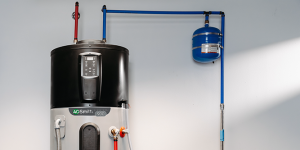Buying a house can be a really fun process. Getting a mortgage, on the other hand, can be a huge hassle. That’s true in large part because you are going to need to produce so many documents when you apply for a home loan from a lender.
So, just what kinds of financial paperwork are you going to need to provide? Here’s a list of the documents that are going to be required when you’re purchasing a property.
1. Proof of employment
Mortgage lenders want to make sure you’re gainfully employed so you can afford to pay back your loan. Not only that, but they’ll likely want to see you’ve stuck with the same employer for the past few years so you have a stable job and aren’t likely to lose it soon after getting your mortgage.
Because of this, lenders are going to want to see some type of proof of employment. Sometimes, lenders will accept pay stubs and tax returns but in other cases, they may want to talk with your company’s human resources department to confirm you work there.
2. Pay stubs
Lenders need to know how much you make so they can determine how much they think you will be able to repay. They will want to see pay stubs showing your earnings. Typically, you’ll need to verify a minimum of 30 days of income when you send in your financial documents.
3. Two years of tax returns
Tax returns are important for a lender, as they also provide proof of income. If you are a self-employed borrower who is running your own business, tax returns will be even more important because they will show details about your company’s earnings and expenses. You can expect to be asked to provide two years of tax returns. You’ll likely also have to sign release forms allowing the lender to get copies of your tax returns directly from the IRS.
More: Check out our picks for the best mortgage lenders
4. Bank and brokerage statements
Lenders are going to ask for three months of financial statements from your bank and brokerage accounts. There are a number of things they’re looking for with this request.
One thing lenders want to do is to check how much money you have for a down payment and closing costs. They may also want to see how much money you have in financial reserves, which would be extra funds you’d have left after making your down payment and closing on your loan that you could use to pay your mortgage if you ran into financial trouble.
Lenders may also be checking for any unusual deposits or withdrawals. They’ll want to confirm your down payment money didn’t come from a gift that was deposited into your account, for example, and they’ll also want to be sure you aren’t going on a spending spree.
5. Loan statements
Mortgage lenders look at your debt-to-income ratio when you’re purchasing a home. Specifically, most lenders want your total debt including new monthly mortgage payments to be below 36% of your income.
Since lenders want to know what else you owe, you may be expected to provide loan statements. These will help lenders to see what your other obligations are, so they can determine if adding a mortgage payment on top of your existing loans is a good idea.
6. Your purchase contract
Finally, lenders will need to see the purchase contract with the home sellers. This will help them learn important details like when you are closing on the house, how much earnest money you put down, and how much you are paying for the home.
It’s important to get all of these documents ready when you apply for a mortgage, so you can be prompt in providing them to your mortgage lender. This will ensure your loan goes through as quickly as possible.
Read the full article here














